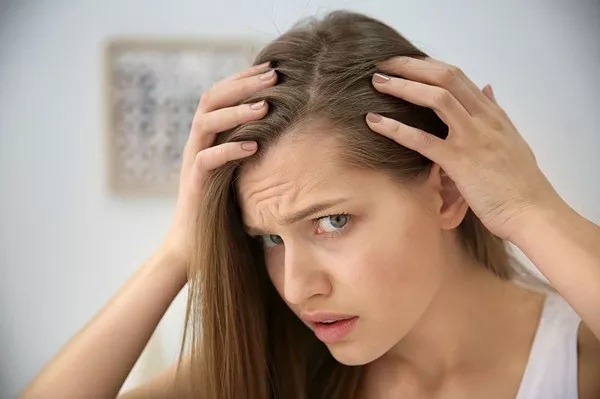Hair loss can be a distressing experience for both men and women, impacting self-esteem and overall well-being. Whether you’re noticing more strands in your shower drain or a thinning hairline, understanding the causes of hair loss and adopting preventive measures can help you maintain a healthy head of hair. From lifestyle changes to proper hair care routines, there are numerous ways to tackle hair loss and promote hair health. In this article, we’ll explore effective strategies to stop hair from falling out and address some common questions related to hair loss.
Understanding Hair Loss Causes
Before delving into prevention strategies, it’s crucial to grasp the underlying causes of hair loss. Various factors contribute to this issue, ranging from genetics and hormonal changes to lifestyle and medical conditions. The most common type of hair loss is androgenetic alopecia, often referred to as male-pattern or female-pattern baldness. This hereditary condition can start as early as the teenage years and is characterized by a receding hairline and thinning at the crown.
Hormonal changes, particularly imbalances in dihydrotestosterone (DHT), can trigger hair loss. DHT is a hormone that shrinks hair follicles, leading to shorter and finer hair. Additionally, medical conditions such as thyroid disorders, autoimmune diseases, and scalp infections can also cause hair to fall out.
Nurturing Your Hair: Preventive Measures
Balanced Diet for Healthy Locks: What you eat plays a significant role in your hair’s health. Incorporate a variety of vitamins and minerals, such as biotin, vitamin E, and omega-3 fatty acids, into your diet. These nutrients support hair growth and strengthen hair follicles. Foods like eggs, nuts, leafy greens, and fish are rich sources of these essential nutrients.
Gentle Hair Care Routine: Overstyling and excessive use of heat tools can damage hair and lead to breakage. Opt for a gentle hair care routine, including mild shampoos and conditioners. Avoid tight hairstyles that pull on the hair, and let your hair air dry whenever possible.
Manage Stress: Chronic stress can contribute to hair loss. Engage in stress-reduction techniques such as meditation, yoga, or regular exercise to promote overall well-being and healthy hair.
Scalp Care: A healthy scalp is the foundation for strong hair. Keep your scalp clean and well-moisturized. Consider using products with ingredients like tea tree oil or salicylic acid to maintain a balanced scalp environment.
Avoid Harsh Chemicals: Chemical treatments like bleaching and excessive coloring can damage hair cuticles and lead to hair loss. Minimize the use of harsh chemicals and consider natural alternatives if needed.
Frequently Asked Questions
Q1: Are there any effective medical treatments for hair loss?
Yes, there are medical treatments available for hair loss. Two commonly used treatments are minoxidil and finasteride. Minoxidil is a topical solution that promotes hair growth, while finasteride is an oral medication that blocks the effects of DHT. However, these treatments may not work for everyone, and results can vary.
Q2: Can certain hairstyles lead to hair loss?
Yes, certain hairstyles that cause tension on the hair, such as tight ponytails, braids, and cornrows, can lead to a type of hair loss called traction alopecia. This occurs when the hair is pulled too tightly, causing damage to the hair follicles. It’s important to choose hairstyles that don’t put excessive stress on your hair.
Q3: Is age a significant factor in hair loss?
Age can be a contributing factor to hair loss. As you age, your hair follicles may shrink, leading to thinner and finer hair. Additionally, hormonal changes that occur with age can also play a role in hair loss. However, age-related hair loss can be influenced by genetics and overall health.
Conclusion
Hair loss is a common concern that can be addressed through a combination of preventive measures and lifestyle adjustments. By understanding the causes of hair loss and adopting a holistic approach to hair care, you can promote hair health and minimize the risk of excessive hair fall. Remember to nourish your body with a balanced diet, maintain a gentle hair care routine, and manage stress effectively. If you’re experiencing persistent or severe hair loss, consulting a healthcare professional or dermatologist can provide personalized guidance and treatment options tailored to your needs. Your journey toward healthier, more resilient hair starts with the choices you make today.

